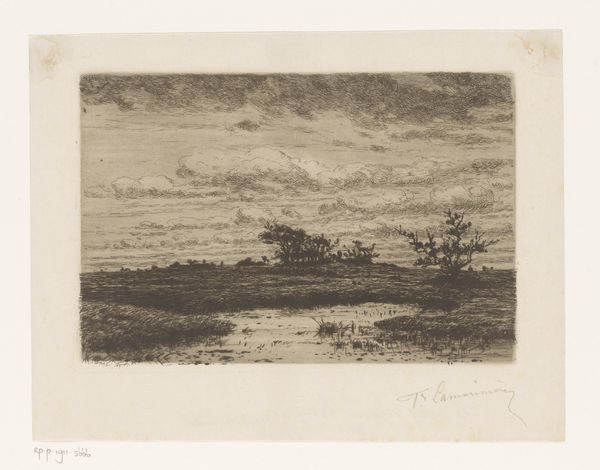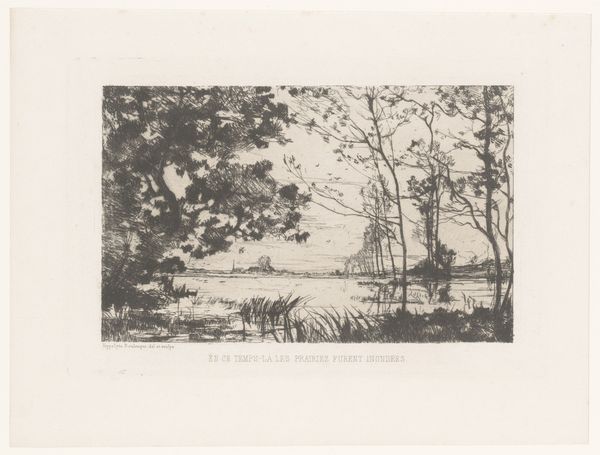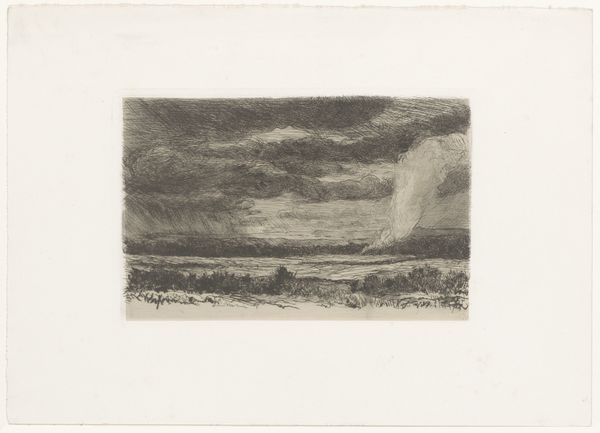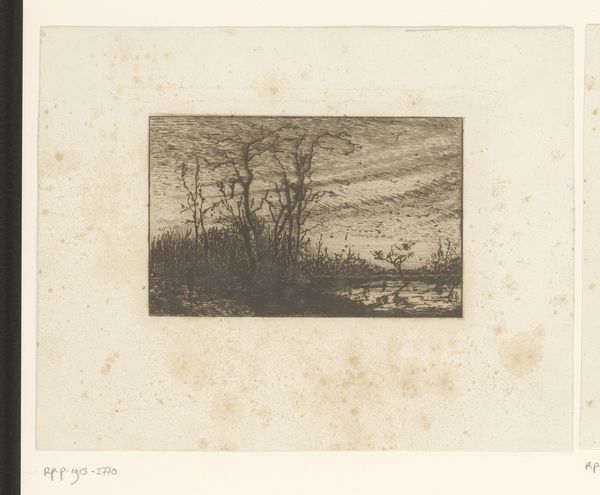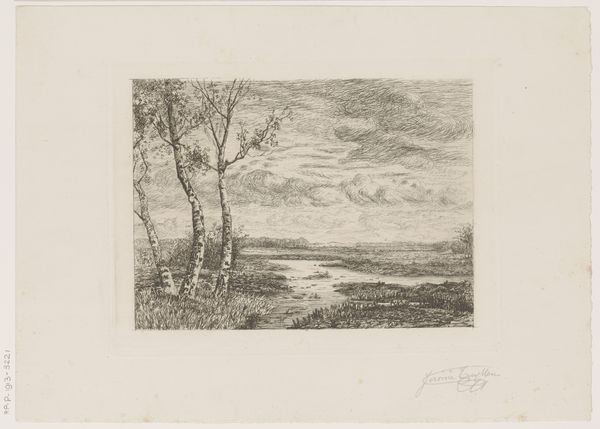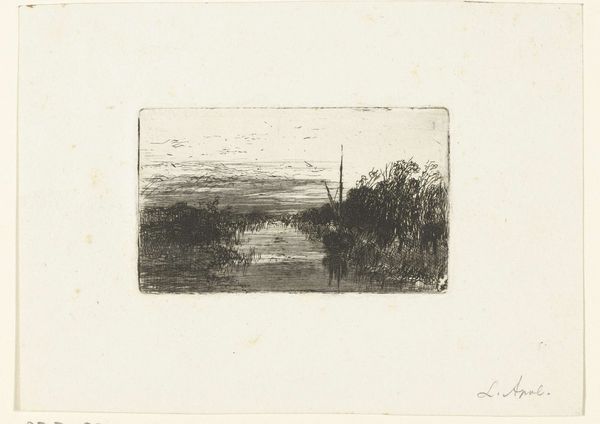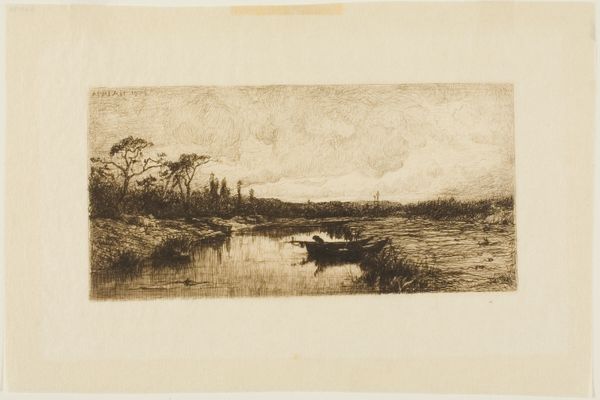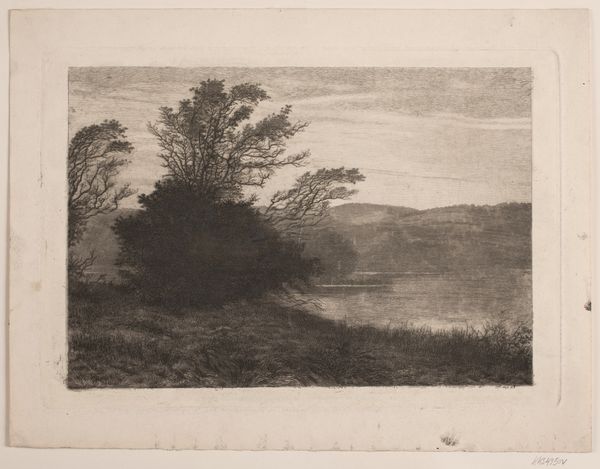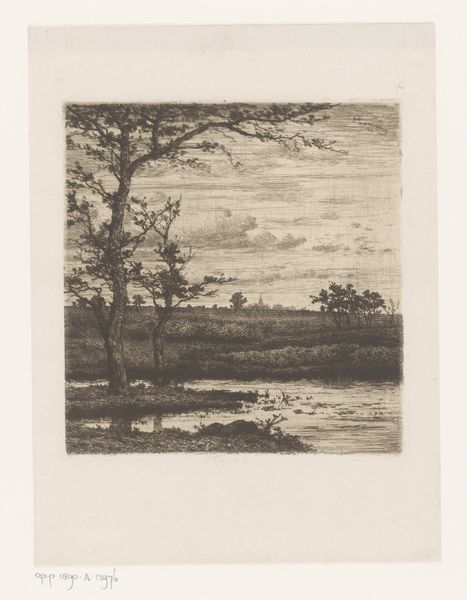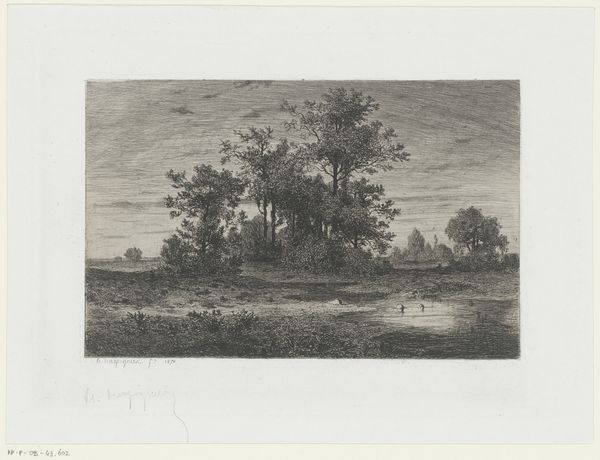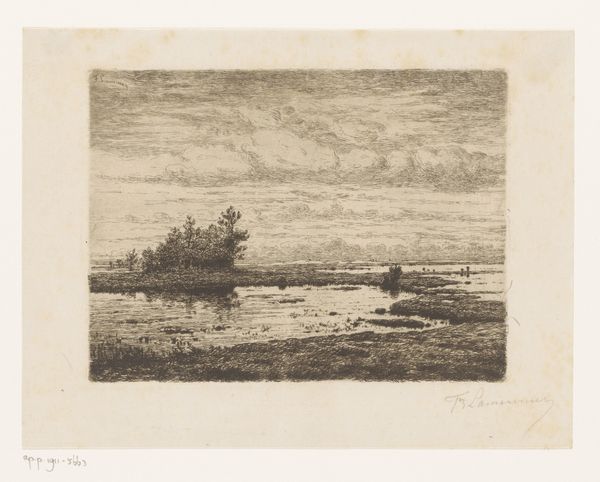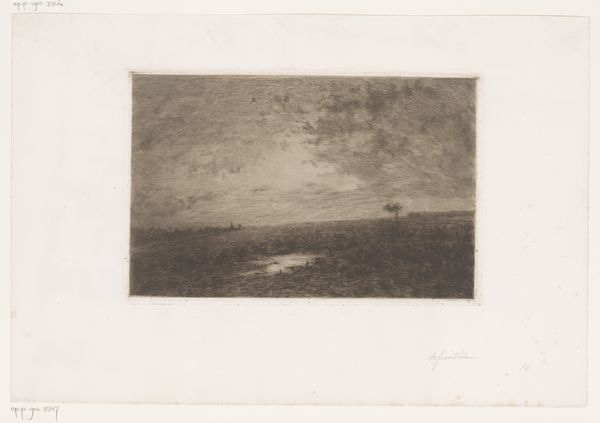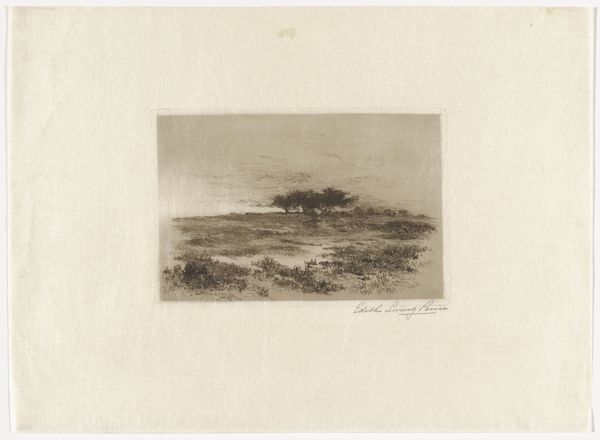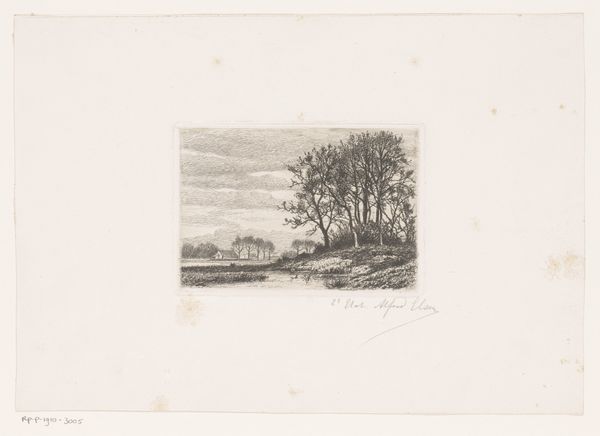
Dimensions: height 220 mm, width 314 mm
Copyright: Rijks Museum: Open Domain
Curator: Today, we're looking at "View of the Meuse near Jupille," an etching by Théodore Tscharner, dating roughly from 1836 to 1906. Editor: It’s strikingly bleak, almost desolate. The stark monochrome lends a melancholic air, wouldn't you say? It is as if a storm has just passed or is gathering momentum over the water. Curator: Indeed, Tscharner's expert handling of etching creates a textured surface, rich with tonal variation. Notice the interplay of light and shadow, achieved through carefully controlled lines and cross-hatching, especially in the treatment of the sky. How does that speak to you? Editor: The sky dominates. I’m curious how the artist's choice to emphasize the looming sky might be reflective of broader anxieties during this period – perhaps related to industrialization or societal upheaval. Landscape as a site of tension rather than tranquility. Curator: Interesting proposition! The work embodies several styles including both Realism and Romanticism. The subject matter – the river and its surroundings – grounds the artwork in observable reality, but Tscharner elevates the subject with expressive line work, giving rise to a more heightened, subjective experience. It merges precise rendering with emotionally resonant mark-making. Editor: This blending of styles definitely contributes to the piece's complexity. Given the time period of its making, perhaps the print comments on society’s growing reliance on extraction and fossil fuels by illustrating humanity's dependence on natural resources and waterways, a commentary on human innovation and its potential dangers to the Earth. Curator: I can definitely perceive a thematic tension through a contemporary lens. It is a testament to the enduring power of art to provoke introspection. I wonder, does that shift how we understand the river represented here? Editor: Absolutely. We begin to question its exploitation in favor of imagining a reality where natural conservation is prioritised over technological progress. It speaks directly to our times and concerns. Curator: Tscharner’s composition allows us to ask pressing questions that persist across the ages. Thank you for bringing your perspective to the work today. Editor: My pleasure. I think that interrogating the narratives we accept empowers everyone.
Comments
No comments
Be the first to comment and join the conversation on the ultimate creative platform.
